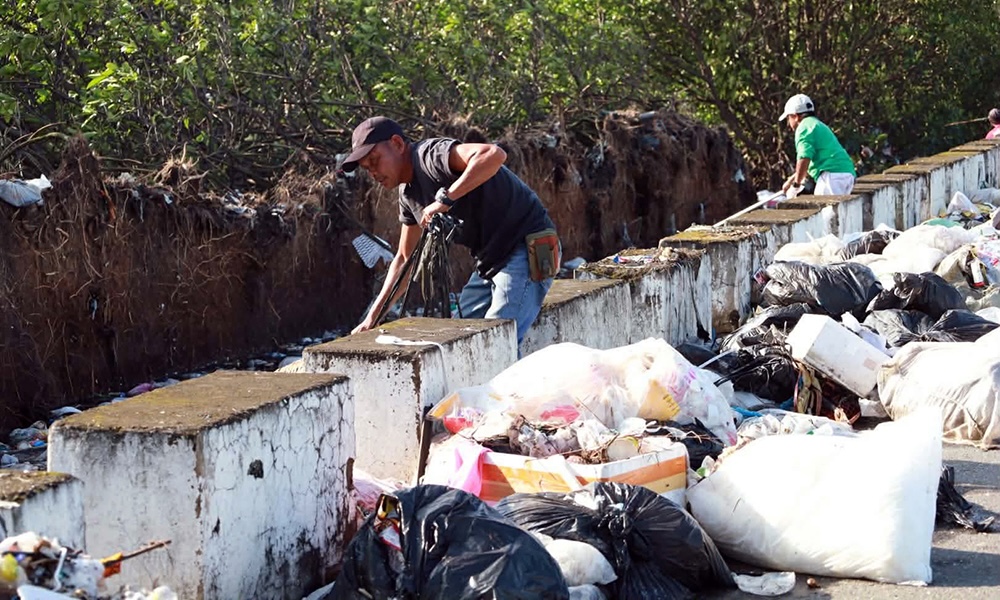When lies go viral
 By Eva C. Visperas
By Eva C. Visperas
WAS it about starting a joke?
Was it to gain more views and reactions in exchange for social media income?
Was it part of the continuing saga of discrediting and destroying the leadership of incumbent city officials?
Or was it simply to spread hate and lies—intentionally or otherwise?
Whatever the reason, it was the height of cruelty, insensitivity, and irresponsibility. Imagine posting something without verifying it, only for people to share and amplify it until it spreads like wildfire—worse than the storm itself.
As Super Typhoon Uwan (international name: Fung-wong) battered Dagupan, the entire province of Pangasinan, and nearby islands in Luzon with catastrophic winds, torrential rains, and devastating floods, another disaster was brewing online: the spread of fake news claiming that several people, including children, were electrocuted in a barangay in Dagupan.
The Dagupan Electric Corporation (DECORP) immediately issued a statement firmly denying the false reports circulating online. The Dagupan City Government Information Office likewise clarified: “Walang namatay sa kuryente.” (Nobody died from electrocution.) The Dagupan City Police Office followed suit, urging people not to share unverified claims.
Yet, the damage had been done.
Mayor Belen Fernandez, in her program Bantay Dagupan, made a heartfelt plea: stop spreading false information. She reminded everyone that while responders are rushing to save real lives, these lies divert attention, waste critical time, and endanger others.
“Imbis na hindi na magambala pa ang mga awtoridad at nakatuon na lang sana ang pansin at aksyon nila sa mga totoong nangangailangan ng tulong ay pineperhuwesyo pa sila. Dapat matigil ang gawaing ito, lalo na sa panahon ng kalamidad. Hindi ito ordinaryong biro,” the mayor said.
Indeed, it is not an ordinary joke. False information during crises is not harmless—it is dangerous. It can incite panic, mislead rescuers, and even cost lives.
On her Facebook page, the mayor reminded citizens: “This is a very serious matter, particularly now that we are facing equally serious challenges brought by the impact of Super Typhoon Uwan. False information in times of crisis causes unnecessary panic and undermines the hard work of our frontliners. Let us all be responsible. Verify before sharing. In times like these, KATOTOHANAN LANG PO SANA ANG MAMAYAGPAG.”
A local vlogger has since issued a public apology for carelessly posting the false report. But apologies cannot undo the panic caused or the time wasted. More responsible netizens responded strongly to the apology:
“Di excuse ang screenshot para i-share mo ang fake news. As a vlogger, responsibility mo na i-verify muna ang info. Mag fact-check muna bago mag-share—always think before you click.”
“Korek! Masyado kang exaggerated sa post mo. Nag-panic tuloy mga tao.”
“Check details first bago magpost. Okay lang sana if kilala mo ang nagpost at alam mong legit ang insidente. Dami mong naalarma. Try mong magbalance sa posting mo. Sino-sino natatapakan mo lalo na Pangasinense ka.”
These are words born of frustration, but also of hope—that we, as a community, can learn.
Misinformation/disinformation is not a mere mistake—it’s a moral failing when done knowingly, a civic failure when done carelessly. Social media has given everyone a voice, but with that voice comes responsibility. In times of disaster, truth can save lives just as lies can destroy them.
Many are now calling for legal action against those who deliberately spread false information during emergencies. And rightly so. Accountability must follow irresponsibility. The law must be there not only to punish but to educate—to remind us that freedom of expression carries a duty: to use it wisely, compassionately, and truthfully.
As we rebuild our homes and lives after Uwan, let us also rebuild our sense of community and conscience online. Let’s turn our phones into tools for hope, not harm. Let us be the kind of digital citizens who verify before we share, who think before we click, and who choose truth over trend.
Because at the heart of this storm is not just the destruction caused by wind and flood—but by words.
Responsibility plus accountability equals stability.
When the wind howls and the floodwaters rise, may our compassion be louder than our recklessness, and may our truth shine brighter than the lies.







